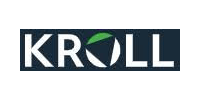If you haven’t looked at the opportunities offered by utilizing alternative data, you should! The value and impact of multiple correlated data sources is far more than the sum of its parts.
There are more than enough examples of supposedly healthy public companies with robust financials going bust, and yet after the fact analysis including employee sentiment, customer satisfaction, and other non-financial data would have demonstrated that all was not well long-before the downfall.
Alternative data is a case where one plus one is definitely more than two.
If you are an investment professional, you are probably already very familiar with the existence and use of alternative data. For the rest of us, alternative data can refer to any data or data set used to derive insight for investment decisions beyond traditional publicly available financial information.
Here are some examples of alternative data that quantitative financial firms and hedge funds have been using to improve their investment returns:
- Satellite or geo-location data sets to assess the foot or vehicle traffic to retail locations
- Product reviews to assess customer satisfaction with a particular company’s offerings
- Employee satisfaction scores from sites like Glassdoor to determine confidence in a company’s direction and leadership
- Recruitment information from job sites to understand if and how a company is growing and retaining its base of talent.
- Social media and newsfeeds for real-time assessment of customer needs, trends, etc.
The right combination of alternative data sets, and analytics capabilities can provide a distinct information advantage to the firm that harnesses it: verifying investment hypotheses faster and mitigating risk far more effectively than competitors solely reliant on quarterly reports and other traditional reporting and information.
The value of these information asymmetries is well understood in the financial and investment industries. In a recent global client survey we conducted for a major financial services firm, the desire for more and better alternative data sets was one of the most often cited needs and was cited as even more important in the post-pandemic – forecast challenged – world where traditional measures are outdated almost as soon as they are published.
But what does alternative data mean for companies outside the financial and investment field? At Mod Op Strategic Consulting we see opportunities on all sides of the data marketplace for companies looking to obtain an edge as a consumer of alternative data, or to drive revenue growth as a supplier of that data to others looking for that advantage. Below are three specific ways to use alternative data to your advantage.
Mining your own alternative data – develop a strategy and a capability
In today’s world of digital services and interactions, most companies are generating huge amounts of exhaust data as a byproduct of normal digital business operations. There’s gold in them thar fumes which can likely be mined as a source of refined and valuable alternative data. Unfortunately, many organizations do not even capture or retain this raw material which therefore cannot be utilized, now or in the future. The most important first step is developing a data strategy that ensures the capture and analysis of exhaust data (customer interactions, site navigation, product usage information, etc.) allowing for the identification of new ways to use it or monetize it. How to do that is beyond the scope of this post, but please reach out if interested, we would be happy to discuss and help get you started.
Selling your alternative data
Once you are capturing your alternative data, you can decide what data is best to use and what data might be more valuable to sell to others. Of course, there are a whole host of legal, privacy, and competitive issues that have to be navigated if you travel down this road, but selling your own data can be a defensible, proprietary and high-margin business, well worth the consideration and time.
Buying the alternative data of others
Lastly, it makes sense to consider what alternative data sets might improve your business, either by giving you new ways to serve your customers or new insights to improve your own products, services and processes, or even your corporate development investment hypotheses. There are a number of alternative data platforms out there that are collecting a wide range of data sets. Getting familiar with their offerings could be a good investment and allow you to get some of the advantages currently experienced by the hedge fund folks.
We have only scratched the surface of the alternative data space here. If anything we’ve covered is of interest, please don’t hesitate to reach out to Mod Op Strategic Consulting for a deeper conversation.

















